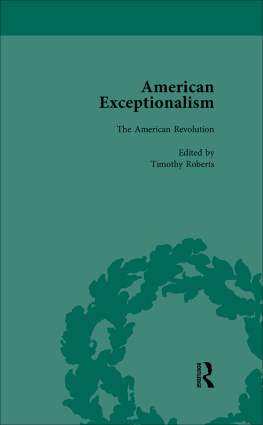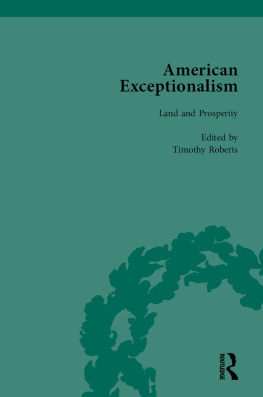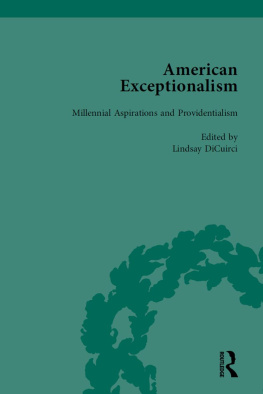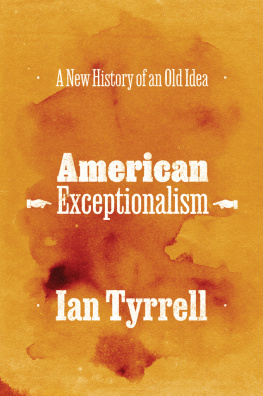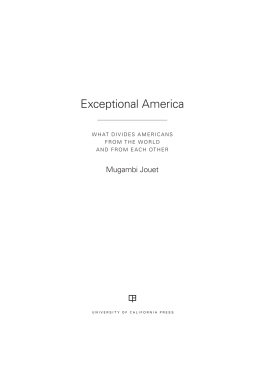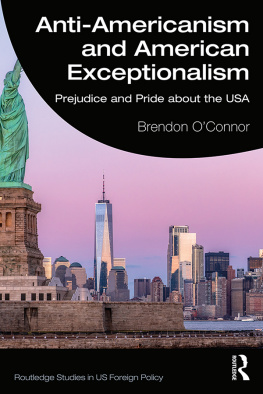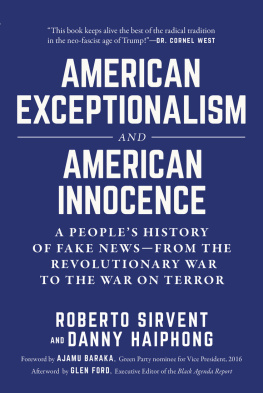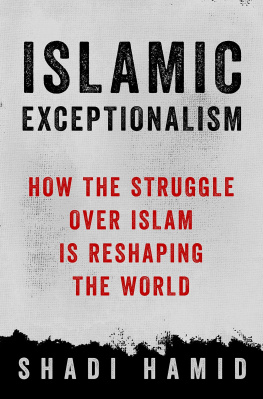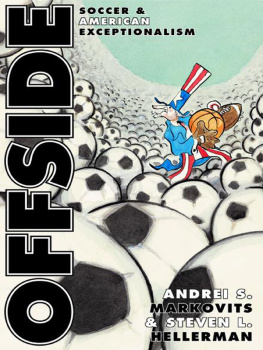First published 2013 by Pickering & Chatto (Publishers) Limited
Published 2016 by Routledge
2 Park Square, Milton Park, Abingdon, Oxon OX14 4RN
711 Third Avenue, New York, NY 10017, USA
Routledge is an imprint of the Taylor & Francis Group, an informa business
Copyright Taylor & Francis 2013
Copyright Editorial material Lindsay DiCuirci 2013
To the best of the Publishers knowledge every effort has been made to contact relevant copyright holders and to clear any relevant copyright issues. Any omissions that come to their attention will be remedied in future editions.
All rights reserved, including those of translation into foreign languages. No part of this book may be reprinted or reproduced or utilised in any form or by any electronic, mechanical, or other means, now known or hereafter invented, including photocopying and recording, or in any information storage or retrieval system, without permission in writing from the publishers.
Notice:
Product or corporate names may be trademarks or registered trademarks, and are used only for identification and explanation without intent to infringe.
BRITISH LIBRARY CATALOGUING IN PUBLICATION DATA
American exceptionalism.
1. Exceptionalism United States. 2. National characteristics, American. 3. United States Religion. 4. United States History, Military Sources. 5. Economic development United States History Sources. I. Roberts, Timothy Mason, 1964 II. DiCuirci, Lindsay. 973-dc23
ISBN-13: 978-1-84893-289-0 (set)
Typeset by Pickering & Chatto (Publishers) Limited
In his 1903 essay, Economics and Social Progress, reprinted in this volume, E. R. A. Seligman articulates the thesis of anti-exceptionalist discourse:
We think with complacency that there is something inherent in our democracy; we look back upon the achievements of our colonial struggles as the obvious consequence of the Puritan character; we congratulate ourselves upon our love of liberty, our inventive ingenuity, our unexampled prosperity. What we do not see is the essential relativity of all these phenomena, the dependence of them all on the shifting conditions of time and place.
Seligman is neither disdainful of the US, nor disparaging of its history and institutions; he is not anti-American. Rather, Seligman believes that the successes of the US are bound to an incalculable number of contingencies over which it has no control and that its governing institutions are derivatives of any number of past societies, from the woods of Germany to the dunes of Holland to the steppes of Asia. For Seligman, the trajectory of the nation was not essentially different from that of other communities, nations or empires that had come and gone through the ages. In short, America was unexceptional.
As the other volumes in this collection make clear, Seligmans logic ran counter to the dominant narrative, which positioned the US as a nation apart, unique in its resources and economy, its democratic institutions and liberalism, and its sense of divine destiny and moral duty. His essay is a rather tempered addition to an often scathing counter-narrative of anti-exceptionalism that cast America, in Jack Greenes words, as a nursery of malignant forces: a place of ruthless exploitation, profound moral corruption, palpable cultural regress, and even marked physical degeneration. Yet even this characterization implicitly assumed that, in its essential character, America was sharply distinguishable from, if patently inferior to, the Old World.1 Thus, anti-exceptionalism contained within it an entrenched belief in American distinctiveness, but the nature of this distinctiveness was hotly contested. Many of the pieces selected for this volume contend that America is exceptional for all of the wrong reasons or that its status as exceptional was, as one writer puts it, merely an imaginative product by which citizens were momentarily dazzled but ultimately disillusioned.2
One of the most consistent arguments in the anti-exceptionalist narrative is that America operates more as an empire, derived from the European tradition, than as a unique democratic republic. This thesis reached its zenith in post-World War II America, when the frenzy to squelch communism, police civil conflicts abroad and induce regime changes hailed the arrival of a new kind of American empire, even as the nation was keen to avoid that designation. While a programme of imperialism has often been invoked metaphorically in the political arena President George W. Bushs metaphor of America as a seed upon the wind, taking root in many nations is illustrative America has remained the empire that dared not speak its name.3 Perhaps because of the compulsive disassociation with the term in the public discourse, scholars from across the disciplines have been actively recovering it in recent years; indeed, Susan Gilliam writes that after a perceived absence in scholarship, the word empire is, instead, everywhere, on everyones lips.4
Scholarship has come to recognize that the debate around Americas imperial status is an old one that also preoccupied colonists and early citizens of the republic. Rather than insisting on the inevitability of the Revolution, writings from the mid-eighteenth century reveal an affinity between mother country and colonial child that was readily acknowledged. Prior to the Revolution, Carol Smith-Rosenberg writes, British heroes were [colonists] heroes, British enemies, their enemies and, they fervently believed, their enemies were Britains enemies When they began to protest British imperial regulations, they thought of themselves as protecting time-honored British freedoms.5 And even after independence was achieved, Alexander Hamilton captured a shared public sentiment when he wrote in 1794, We think in English, and have a similarity of prejudices and predilections.6 Far from having a unique identity, then, America was understood as being wholly imitative. Beyond this sense of filial identification, though, lay a more insidious concern that the Revolution had not only failed to untether parent from child, but that the child lacked a frame of reference for self-government. The contradictory re-instalment of a monarch in the figure of George Washington is compellingly captured in two famous literary works. African-American poet Phillis Wheatley memorably concluded her poem, To His Excellency George Washington with the lines: A crown, a mansion, and a throne that shine, / With gold unfading, Washington! Be thine.7 While Wheatleys sentiments were also likely tinged with irony, proof of which is found throughout her oeuvre, she nonetheless paints a portrait of Washington surrounded by the trappings of monarchy. By dismantling the New World/Old World binary and placing Washington on the throne, Wheatleys rendering implicitly downplays the radicalism and novelty of the American Revolution on which American exceptionalism was based. Another early American literary text with anti-exceptionalist implications is Washington Irvings famous story of Rip Van Winkle, published in




